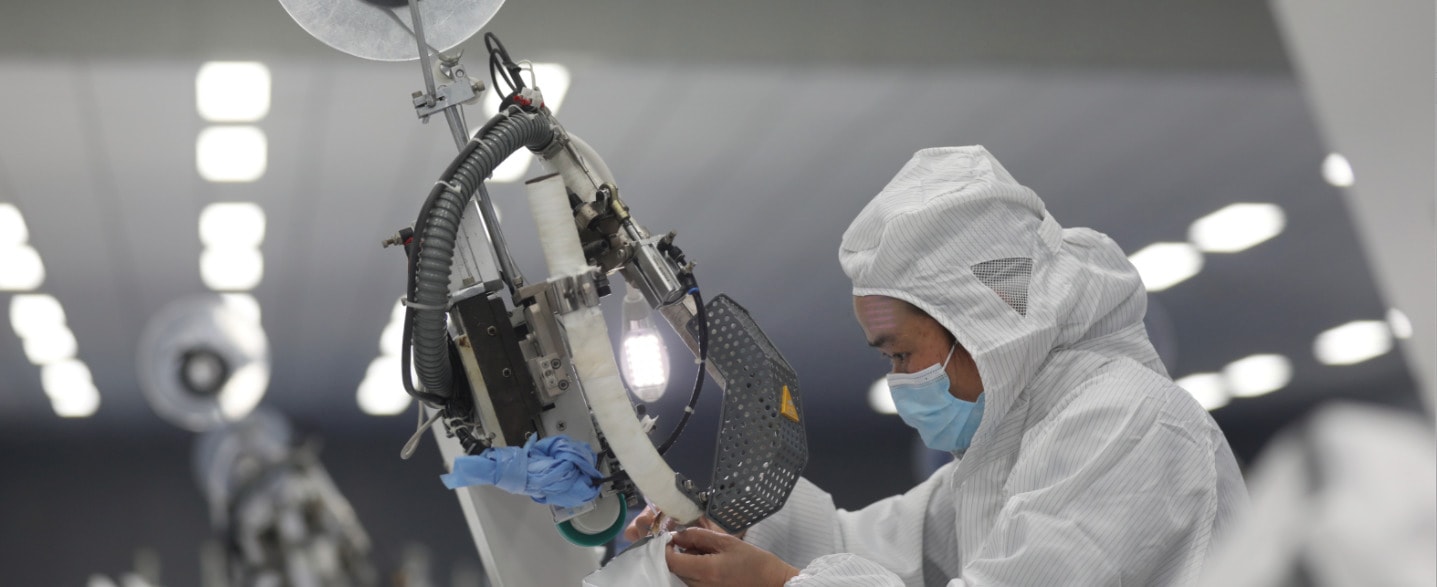

グローバル・フューチャー・カウンシルネットワーク
世界経済フォーラムの「グローバル・フューチャー・カウンシルネットワーク」は、世界を代表するマルチステークホルダーおよび学際的な知識ネットワークであり、よりレジリエントかつ包摂的、持続可能な未来を形作るための革新的な考えを促進することを目的としています。各カウンシルの洞察は、世界経済フォーラムの継続的なイニシアチブやコミュニティ、会合によって前進され、その影響を確実にしています。
ネットワークは招待制のコミュニティで、メンバーは2年間の任期で参加。600名ほどの最も関連性の高い知識人が、学術界、政府、国際機関、ビジネス、おひょび市民社会から集まり、専門性に基づくテーマ別のカウンシルに分かれて議論します。現在の任期は2023年3月に開始。2024年12月まで継続します。 使命 本ネットワークは、グローバルな影響を与える可能性のある変革的なアイデアを特定し、広める手助けをします。
「グローバル・フューチャー・カウンシル」のメンバーは、以下の3つの柱を通じて戦略的な洞察、科学的証拠、先見的な指針、学際的な問題の理解を提供します。
・新しいアイデアと革新的な思考: 最先端かつ破壊的なアイデアを育み、主要な分野を特定して形作るための先見性を発展させます。
・専門知識と証拠に基づく基盤となるデータ、証拠、事実、研究に基づいた官民協力の基盤を提供します。
・学際的かつシステムアプローチ: 確立された問題と最前線の問題の間の関連性を結び付け、ビジネス、学術界、市民社会、政府、国際機関からの思想的リーダーを統合します。
「グローバル・フューチャー・カウンシル・ネットワーク」について、さらに詳しく知る
関連 コミュニティ


Global Future Council on the Future of Artificial Intelligence

Global Future Council on the Future of Autonomous Mobility

Global Future Council on the Future of Care Economy

Global Future Council on the Future of Cities

Global Future Council on the Future of Clean Air

Global Future Council on the Future of Complex Risks

Global Future Council on the Future of Cybersecurity

Global Future Council on the Future of Data Equity

Global Future Council on the Future of Economics of Equitable Transition

Global Future Council on the Future of Energy Transition

Global Future Council on the Future of Food and Water Security

Global Future Council on the Future of Geopolitics

Global Future Council on the Future of Good Governance

Global Future Council on the Future of Growth

Global Future Council on the Future of Job Creation

Global Future Council on the Future of Metaverse

Global Future Council on the Future of Nature and Security

Global Future Council on the Future of Net Zero Living

Global Future Council on the Future of Philanthropy for Climate and Nature

Global Future Council on the Future of Quantum Economy

Global Future Council on the Future of Resilient Financial Systems

Global Future Council on the Future of Responsible Investing

Global Future Council on the Future of Responsible Resource Use

Global Future Council on the Future of Space

Global Future Council on the Future of Sustainable Tourism

Global Future Council on the Future of Synthetic Biology

Global Future Council on the Future of Tackling Antimicrobial Resistance

Global Future Council on the Future of Technology Policy

Global Future Council on the Future of Trade and Investment

Previous Global Future Council on Augmented Reality and Virtual Reality

Previous Global Future Council on Clean Electrification

Previous Global Future Council on Human Rights

Previous Global Future Council on Japan

Previous Global Future Council on Media, Entertainment and Sport

Previous Global Future Council on Mental Health

Previous Global Future Council on Net-Zero Transition

Previous Global Future Council on Scientific Collaboration

Previous Global Future Council on SDG Investment

Previous Global Future Council on Social Cohesion and Just Transition

Previous Global Future Council on the New Agenda for Economic Growth and Recovery

Previous Global Future Council on the New Agenda for Education and Skills

Previous Global Future Council on the New Agenda for Fiscal and Monetary Policy

Previous Global Future Council on the New Agenda for Fragility and Resilience

Previous Global Future Council on the New Agenda for Work, Wages and Job Creation

Previous Global Future Council on Urban Mobility Transitions
関連 レポート

Trade and Values: Navigating the Intersection of Policy and Principles
Trade policies have evolved beyond economic efficiency, increasingly reflecting non-trade objectives (NTOs) like climate action, human rights and sustainability. This trend sees countries...

Strengthening the Gender Dimension in the Trade Policy Review Mechanism
Trade and domestic policy interventions can help address challenges women and their businesses face, while gender-disaggregated data assists in identifying issues and evaluating the impac...

Future Focus 2025: Pathways for Progress from the Network of Global Future Councils 2020–2022
Future Focus 2025: Pathways for Progress from the Network of Global Future Councils 2020-2022 offers a positive and inspiring agenda around which a sustainable and inclusive recovery can ...

A Blueprint for Equity and Inclusion in Artificial Intelligence
Artificial intelligence (AI) has great potential to benefit society, but the technology’s full potential can only be realized if it is representative of the diversity of populations it im...

Immersive Media Technologies: The Acceleration of Augmented and Virtual Reality in the Wake of COVID-19
The COVID-19 pandemic disrupted whole economies. Immersive media businesses, which focus on technologies that create or imitate the physical world through digital simulation, have been no...

Engaging Affected Stakeholders: Guidance for Board Members on Human Rights
Companies face increasing scrutiny of their social and environmental performance from consumers, communities, workers, governments and investors. Business leaders are being urged to consi...

Conflict, Sanctions and the Future of World Trade
The Russian invasion of Ukraine has been met with unprecedented trade and other economic sanctions. Some members of the World Trade Organization (WTO) have revoked Russia’s most-favoured-...

Scaling Investments in Nature: The Next Critical Frontier for Private Sector Leadership
More than half of the world’s GDP – US$44 trillion – is at immediate risk due to nature loss. Fortunately, investing in nature allows us to not only mitigate future environmental catastro...

グローバルリスク報告書2022年版

The Rise and Role of the Chief Integrity Officer: Leadership Imperatives in an ESG-Driven World
The growing shift in corporate governance requires organizations to break down silos and create more deliberate alignment and collaboration across critical functions, including ESG/sustai...

Sustainable Road Transport and Pricing
This White Paper, from the Global Future Council on Urban Mobility Transitions, evaluates road pricing mechanisms and calls for an acceleration towards equitable, clean and financially re...

Net-Zero to Net-Negative: A Guide for Leaders on Carbon Removal
To achieve the goal of a safe climate, we will need to both dramatically reduce emissions to achieve absolute zero greenhouse gases and simultaneously start reducing the stock of pollutan...

Revisiting and Realizing the Promises of Synthetic Biology
Synthetic biology is a frontier field that employs science and engineering approaches to design biologically based parts, novel devices and systems as well as redesign existing, natural, ...

Getting to Net Zero: Increasing Clean Electrification by Empowering Demand
Published under the auspices of the World Economic Forum Global Future Council on Clean Electrification, this Insight Report invites policy-makers, regulators and investors to place great...

Global Future Council on Responsive Financial Systems: Three ways to accelerate a digital-led recovery
The financial system is playing a critical role in facilitating the recovery from the COVID-19 pandemic. As the recovery is largely digital-led, members of the Forum’s Global Future Counc...

Space for Net Zero
Climate change is one of the greatest global challenges. The accumulation of greenhouse gases in the atmosphere, particularly from anthropogenic emissions, is changing Earth’s climate at ...

Pathways to Digital Justice
The World Economic Forum’s Global Future Council on Data Policy liaised with the Global Future Council on Media, Entertainment and Sport and the Global Future Council on AI for Humanity t...

A Holistic Guide to Approaching AI Fairness Education in Organizations
As companies around the world increasingly use artificial intelligence (AI) in their decision-making processes, there is an ever greater risk of creating or reinforcing unfair bias. This ...

Building Back Broader: Policy Pathways for an Economic Transformation
The highly asymmetric impact of the pandemic has reinforced historical inequalities within and between countries and is now giving rise to a highly divergent recovery. Technological chang...

Global Governance Toolkit for Digital Mental Health
In collaboration with Deloitte

Net-Zero Challenge: The supply chain opportunity
This report, co-authored with Boston Consulting Group, is the second in our series for the Net-Zero Challenge. It showcases the opportunity that all companies have for huge climate impact...

グローバルリスク報告書2021年版
世界経済フォーラム「第16回グローバルリスク報告書」は、人々の健康を脅かす持続的なリスクや新たなリスク、失業率の上昇、デジタルデバイド(情報格差)の拡大、若者の失望、地政学的展望の緊張と脆弱性の高まりなどによる社会の分断がもたらすリスクを分析しています。数多くの企業とその従業員が未来のマーケットにおいて取り残される危険性があります。また、人類の脅威である環境破壊は、社会の...

Net Zero Carbon Cities: An Integrated Approach
Cities cover 3% of the earth’s land surface yet they create more than 70% of all carbon emissions. To keep global temperature increases to 1.5°C or below, cities have to achieve net-zero....

Top 10 Emerging Technologies 2020

The Future of Jobs Report 2020

Dashboard for a New Economy Towards a New Compass for the Post-COVID Recovery
The simultaneous disruption caused by the COVID-19 crisis in nearly every country around the world has forced societies into a moment of pause and reflection on what is truly of value. Re...

Six ways space technologies benefit life on Earth

The Post-COVID-19 Financial System
The COVID-19 pandemic has triggered a rapid transformation of the global financial system: Businesses, small and large, needed almost-instant liquidity, individuals embraced digital and c...

Digital Transformation: Powering the Great Reset
COVID-19 is a watershed moment for the digital transformation of business. The rules for success have changed and are ever more reliant on harnessing the power of digital models to create...

New Nature Economy Report II: The Future of Nature and Business
The Future of Nature and Business, the second of three reports in the World Economic Forum’s New Nature Economy series, provides the practical insights needed to take leadership in shifti...

New Nature Economy Report Series
A series of reports showing the relevance of nature loss to boardroom discussions on risks and opportunities. These insights provide pathways for business to be part of the transition to ...

Global Future Council on Quantum Computing: Frequently Asked Questions
A Community Paper by the Global Future Council on Quantum Computing.

Global Future Council on New Network Technologies - 5G: Society’s Essential Innovation Technology
A Community Paper by Global Future Council on New Network Technologies

Diversity, Equity and Inclusion 4.0: A toolkit for leaders to accelerate social progress in the future of work
The Diversity, Equity and Inclusion Toolkit explores the practical opportunities and risks that rapidly emerging technologies represent for diversity, equity and inclusion efforts. The to...

Winning the Race for Survival: How New Manufacturing Technologies are Driving Business-Model Innovation

How Can Trade Rules Support Environmental Action?

Guidelines for City Mobility: Steering towards collaboration

Shaping a Multiconceptual World

Global Social Mobility Index 2020: why economies benefit from fixing inequality

Nature Risk Rising: Why the Crisis Engulfing Nature Matters for Business and the Economy
Look out: Nature Risks on the Rise

Unlocking Technology for the Global Goals

Schools of the Future: Defining New Models of Education for the Fourth Industrial Revolution
もっと読む
関連するすべてのコンテンツ 

How to shape a sustainable future in space through responsible action
The future of space is not guaranteed. As space becomes more congested and critical to modern life, sustainability is no longer optional – it’s an imperative. Every satellite launch, orbi...

How the Global Future Councils use 'knowledge collisions' to address today’s challenges
Our world is becoming increasingly fragile. It is being shaped by complex challenges ranging from growing geopolitical volatility to trade protectionism, societal polarization and urgent ...

How can AI augment rather than dictate human action? This expert explains
Can machines imitate humans? Alan Turing, the famous British mathematician and computer scientist posed this question in 1950, devising an experiment to explore the idea of how and whethe...